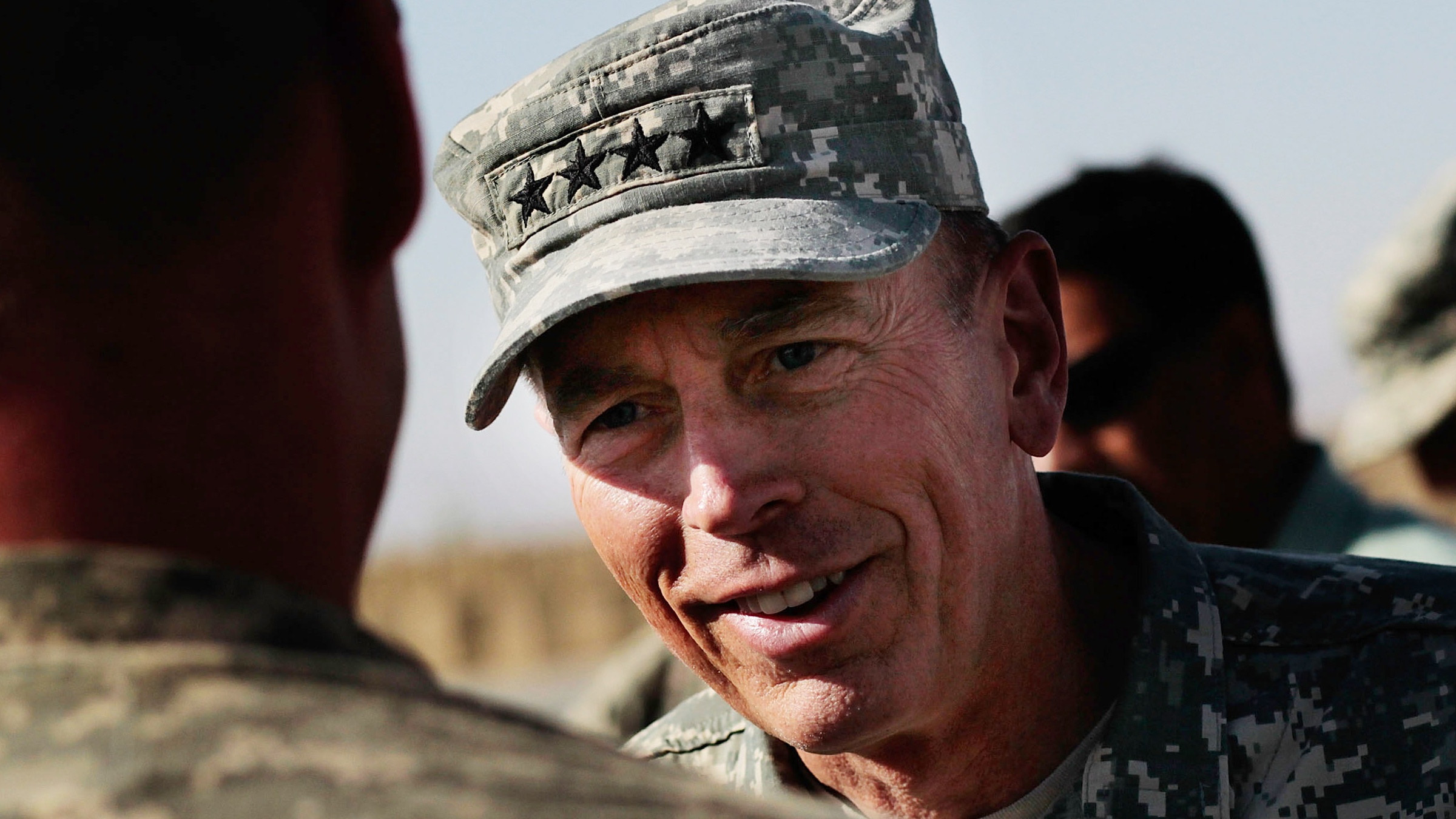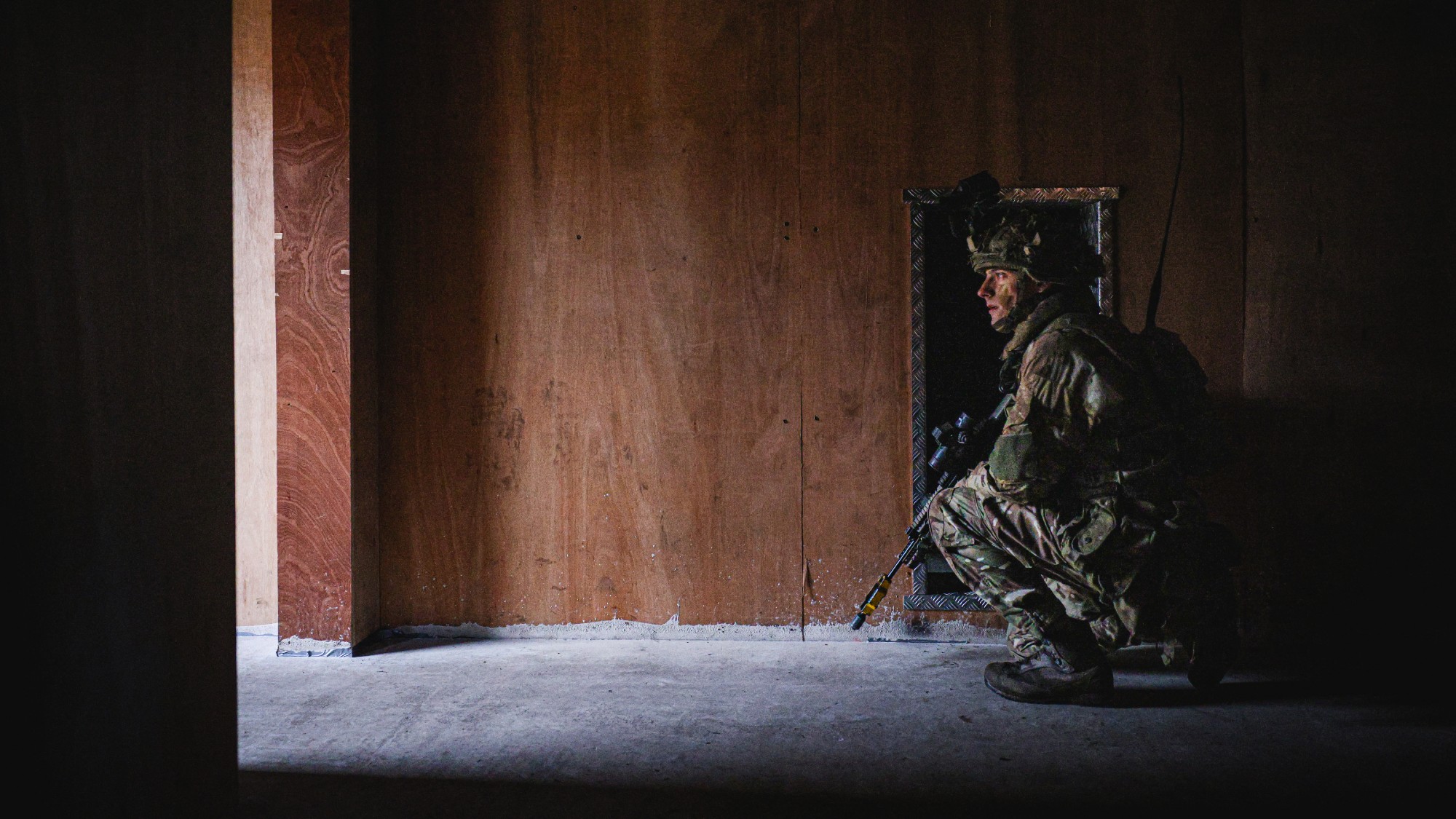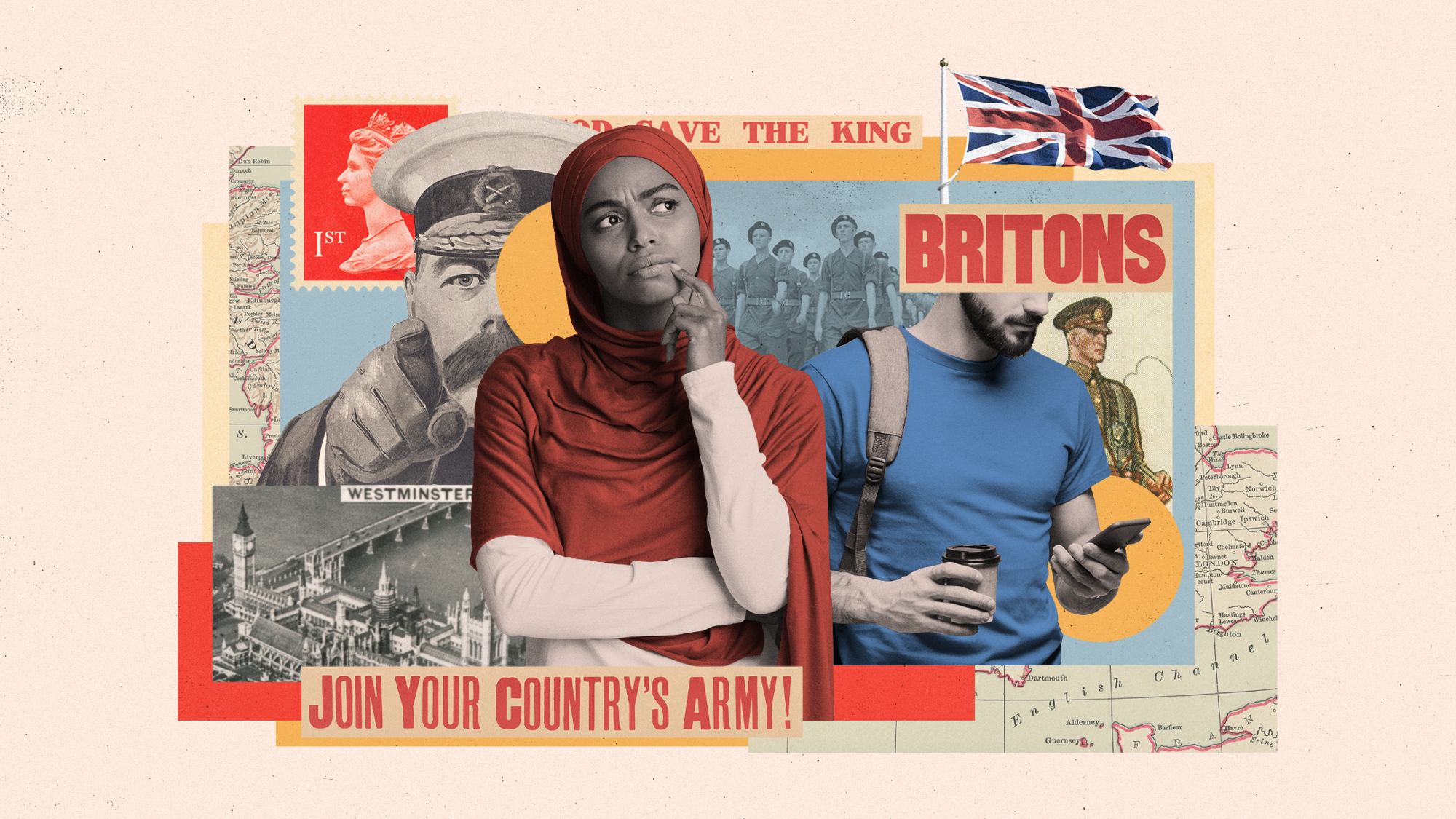Senior general accuses US of ‘abandoning Afghanistan’ to ‘bloody, brutal civil war’
General David Petraeus says Taliban could reinstate ‘medieval Islamist regime’

A free daily email with the biggest news stories of the day – and the best features from TheWeek.com
You are now subscribed
Your newsletter sign-up was successful
The US withdrawal from Afghanistan could trigger a “bloody, brutal civil war similar to that of the 1990s”, according to the former commander of American forces in the country.
Speaking to The Times, General David Petraeus gave his warning as the Taliban are rapidly gaining control of large swathes of the country.
“The rest of the world will see that we are not supporting democracy or maintaining the values that we promote around the world – human rights, particularly women’s rights, the right to education and freedom of speech and press – all very imperfect in Afghanistan, to be sure, but vastly better than if the Taliban reinstates a medieval Islamist regime,” he said.
The Week
Escape your echo chamber. Get the facts behind the news, plus analysis from multiple perspectives.

Sign up for The Week's Free Newsletters
From our morning news briefing to a weekly Good News Newsletter, get the best of The Week delivered directly to your inbox.
From our morning news briefing to a weekly Good News Newsletter, get the best of The Week delivered directly to your inbox.
“The worst-case scenario is we could see a bloody, brutal civil war similar to that of the 1990s when the Taliban prevailed,” he added.
“If that were to happen we would likely see the return of an al-Qaeda sanctuary, although I don’t think [al-Qaeda] would be able to threaten the homeland and Europe in the near-term. And certainly, our intelligence services and military will be watching for that.”
Intense fighting is currently “raging around three major cities in south and west Afghanistan”, the BBC reports, with Taliban insurgents attempting to “seize them from government forces”. Herat, Lashkar Gah and Kandahar have all seen clashes, with concern rising that the Taliban will extend its “rapid rural gains”.
“The fate of these key cities could be crucial amid fears of a humanitarian crisis,” the broadcaster adds, as well as giving an insight into “how long government forces will be able to hold out” against the militants’ attacks.
A free daily email with the biggest news stories of the day – and the best features from TheWeek.com
Petraeus told The Times that the Taliban seizing control of Afghanistan would send “millions of refugees flooding into Pakistan and other neighbouring countries”, adding: “If the Taliban do take control we will see dramatic reductions in freedoms for Afghan citizens, particularly women. I don’t think this is what the world wants to see.”
He also expressed his surprise at Joe Biden’s decision to withdraw US troops amid ongoing negotiations. “If we had shown the determination and will to stay, we would have been in a much stronger negotiating position with the Taliban,” said Petraeus.
“I am a little bit unclear why we didn’t think we could maintain 3,500 troops to stop the Taliban from bringing back an ultraconservative Islamist theocracy which is not in anyone’s interest.”
Petraeus, who spent 37 years in the US Army and was commander of US and Nato forces in Afghanistan between 2010 and 2011, was speaking as the Taliban turned its attention to “a number of key provincial capitals”, The Guardian reports. The group’s “ambition” is thought to be “the fall of Kandahar or Lashkar Gah”, which it is believed “would rapidly topple the five surrounding provinces”, the paper adds.
“The war will go on and will get much worse,” Petraeus added. “We forced the Afghan government to release thousands of Taliban prisoners, and got little or nothing for it.
“But if we had 3,500 troops there to maintain situational awareness and help our Afghan partners, we would have been in a position to prevent the Taliban from bringing civil war to the country.”
-
 The Olympic timekeepers keeping the Games on track
The Olympic timekeepers keeping the Games on trackUnder the Radar Swiss watchmaking giant Omega has been at the finish line of every Olympic Games for nearly 100 years
-
 Will increasing tensions with Iran boil over into war?
Will increasing tensions with Iran boil over into war?Today’s Big Question President Donald Trump has recently been threatening the country
-
 Corruption: The spy sheikh and the president
Corruption: The spy sheikh and the presidentFeature Trump is at the center of another scandal
-
 Munich Security Conference: a showdown between Europe and Trump?
Munich Security Conference: a showdown between Europe and Trump?Today’s Big Question Report suggests European leaders believe they can no longer rely on the US for military support – but decoupling is easier said than done
-
 Taiwan eyes Iron Dome-like defence against China
Taiwan eyes Iron Dome-like defence against ChinaUnder the Radar President announces historic increase in defence spending as Chinese aggression towards autonomous island escalates
-
 Is conscription the answer to Europe’s security woes?
Is conscription the answer to Europe’s security woes?Today's Big Question How best to boost troop numbers to deal with Russian threat is ‘prompting fierce and soul-searching debates’
-
 Operation Rubific: the government's secret Afghan relocation scheme
Operation Rubific: the government's secret Afghan relocation schemeThe Explainer Massive data leak a 'national embarrassment' that has ended up costing taxpayer billions
-
 How will the MoD's new cyber command unit work?
How will the MoD's new cyber command unit work?Today's Big Question Defence secretary outlines plans to combat 'intensifying' threat of cyberattacks from hostile states such as Russia
-
 The state of Britain's Armed Forces
The state of Britain's Armed ForcesThe Explainer Geopolitical unrest and the unreliability of the Trump administration have led to a frantic re-evaluation of the UK's military capabilities
-
 Is the 'coalition of the willing' going to work?
Is the 'coalition of the willing' going to work?Today's Big Question PM's proposal for UK/French-led peacekeeping force in Ukraine provokes 'hostility' in Moscow and 'derision' in Washington
-
 Would Gen Z fight for 'racist' Britain?
Would Gen Z fight for 'racist' Britain?Today's Big Question Only 11% of people aged 18-27 say they would fight for UK, survey by The Times reveals, amid low levels of pride and 'declines in confidence in institutions'